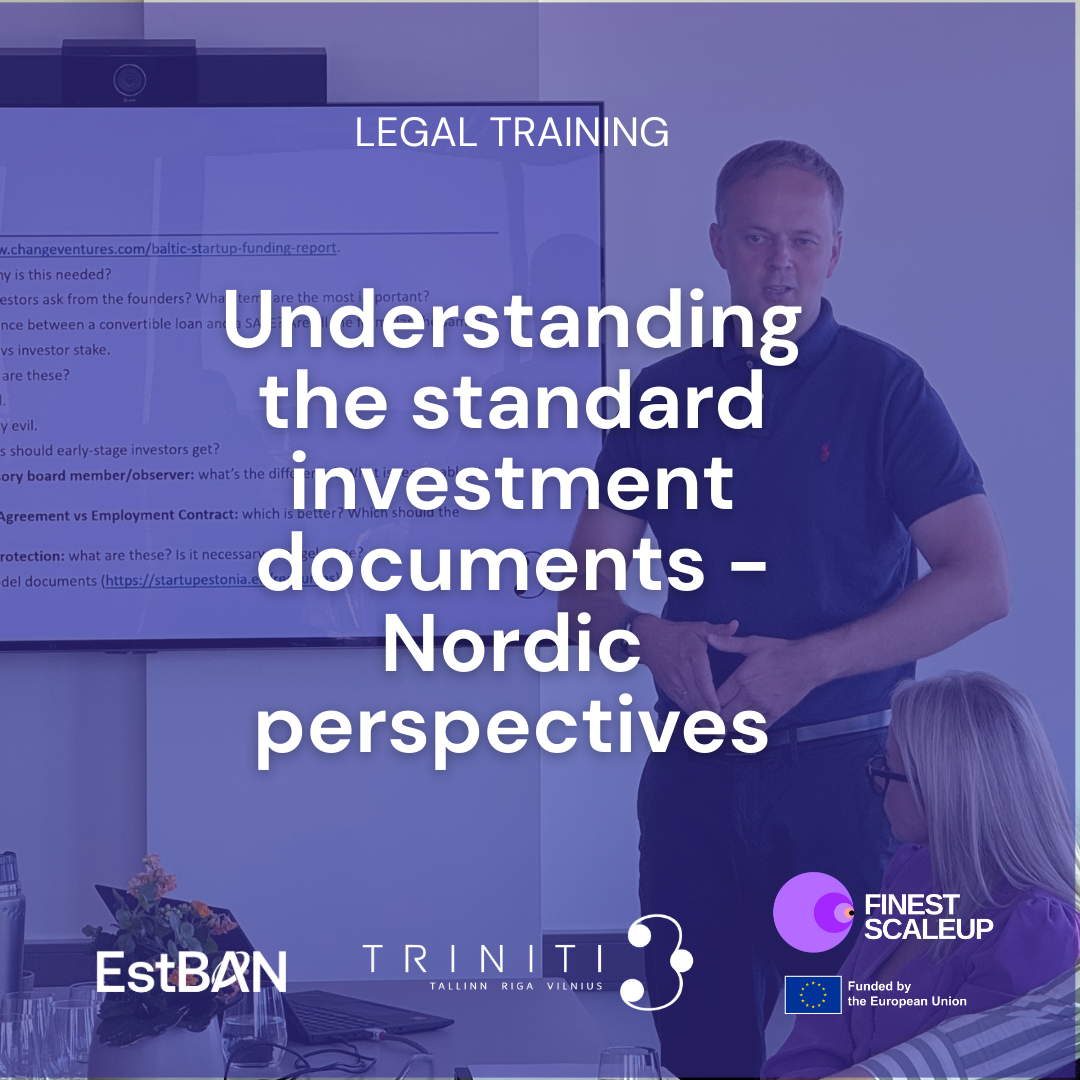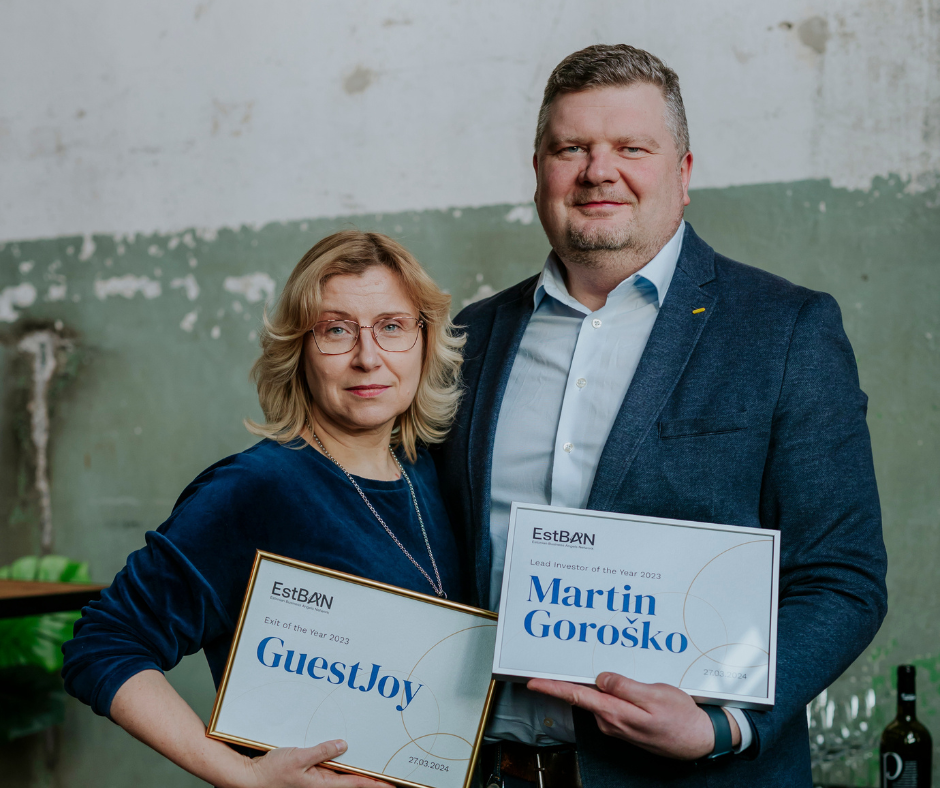Herty Tammo is a serial entrepreneur, an angel investor and co-founder at the B2B-focused Tallinn-based accelerator Startup Wise Guys. He’s also a Kauffman Fellow and the Vice President at the Estonian Startup Leaders Club, making him one of the top guys in the Estonian startup landscape. We spoke to him about the Estonian ecosystem, about his portfolio and plans with Startup Wise Guys.
Herty was interviewed by Marek Unt from JLP Communications Agency.
A few months have passed since GrabCAD’s allegedly $100M exit. How does this transaction change or affect the Estonian investment landscape?
It certainly encourages investors and I’d like to think founders even more so to start new things. However, an even bolder event than GrabCAD’s exit was the recent speculation in Financial Times about TransferWise’s valuation (ed. – FT claimed that Sequoia Capital, the Silicon Valley venture capital firm, is in advanced discussions to invest $50m into London start-up TransferWise, in an investment that would value the money transfer company at close to $1bn). That doesn’t mean it will ever turn into cash, but it’s an inspiring sign for both investors and founders. I’m sure we will see more exits in the next few years.
Does it say something about the Estonian ecosystem or are these simply exceptional individual achievements?
Our ecosystem is clearly above average. At the end of the day founder quality matters more than ecosystem. But since first-time entrepreneurs need to hear from someone what it takes to take over the world, it’s good that we have Startup Leaders Club, Startup Wise Guys and other organizations there to help them.
Clearly our investors cannot be on par with those in the US or UK who have been in the business for over 20+ years, scaling numerous startups. But you can see the growth – VCs from outside are saying there’s an X-factor to Estonian founders, something we can possibly attribute to our stubbornness and being determined. There are a disproportionate number of startups per capita in Estonia, so we’re known quite well in the startup circles.

How supportive do you think the Estonian business angel community is?
Obviously they’re capitalists who would prefer to keep the best deals to themselves. But with seed phase startups, you don’t know yet what the deal is going to be, so you need to play along.
On a human level, you always click with some people more than with others. There are some groups of angels that have developed mutual fit and trust, it has simply worked out between them. But we also have large groups like with the Cloutex and VitalFields syndicate.
Startup Wise Guys accelerator is actually the largest investor syndicate in Estonia that’s doing deals regularly. We have done 32 investments – the biggest portfolio in Estonia –, with around 15 Estonian investors on board. By the end of next year, the total will be 50 investments.
How did your relationship with the accelerator business start?
Jon Bradford (ed. – Managing Director of TechStars) came to Estonia looking for a local partner who could raise some local money for an accelerator. He ended up picking me as the partner, so that’s how it started.
Do you have investments outside Startup Wise Guys?
Indeed, I have a broader portfolio that includes a lot of “old economy”, some less risky technology businesses and then of course startups.
The second category includes the internet advertising company Smart AD and online ticketing solutions provider Ridango that has working solutions in Estonia and Sweden (we’ve also invested in a Mexican ticketing startup called Reserbus). But new investments mainly come in through Startup Wise Guys.
Do you have a clear investment strategy to balance out your portfolio?
The rule of thumb is that angel investments should make up 5% of your portfolio. I have breached that rule without a doubt. But I have done it long enough and the old economy is a big part of my portfolio, so it supports the risky investments. So I do try to keep it balanced and in proportion, but without a strict number behind it.
What are you investment principles for startups? Do you prefer certain fields or business models?
Startup Wise Guys is a B2B accelerator, so that’s where we’re focused. Since we invest in the early phase, the main criterion is founder quality – who they are, how well the team works together, how well do they know the business, what’s their track record, have they put in their 10 000 hours, what is their network like etc. But is has to be a scalable solution with a global goal from day one, otherwise it’s out.
Are Estonian founders more of the technical type or are they getting better at business as well?
They’re getting better in business for sure, and the 3-month program at Wise Guys with around 100 mentors is to help them with getting to product-market fit. They do need a lot of help though, compared to my experience with Mexican startup founders who come in with an MBA from MIT.
Have you seen the quality go up at Startup Wise Guys over the years?
Definitely. The last, 4th class is very strong and it’s not just us at the accelerator saying that. I’m hearing a lot of stories about the graduates raising money successfully, so that’s proof. But it could also be that the accelerator itself has become better known – we are able to recruit better teams and get better applications.
What are your plans for the next year?
As for my personal portfolio, I’m planning for two exits and two bigger investments rounds. Startup Wise Guys has 18 investments planned, and we also want to raise the round sizes.
We’re also in the process of raising a larger fund for next year that would enable us to invest in later phases and in larger amounts – both seed investments as well as series A rounds.



